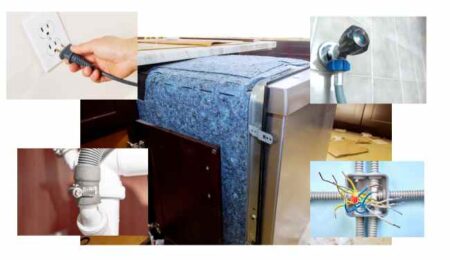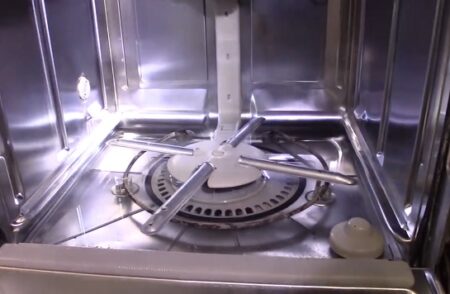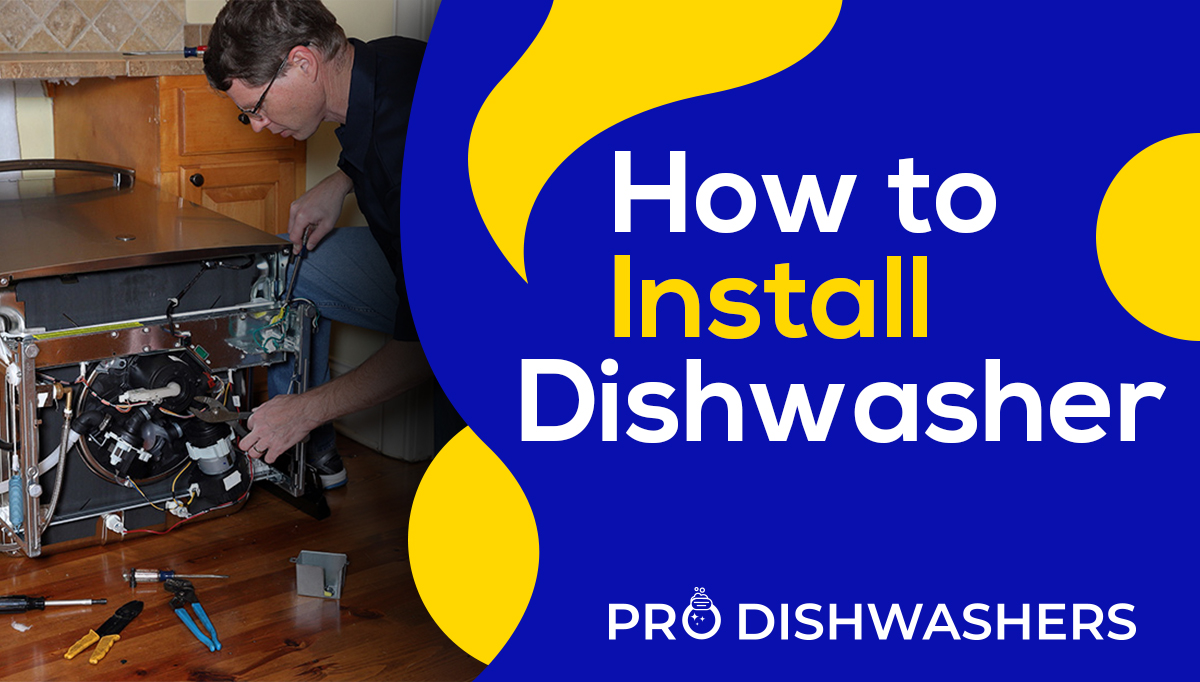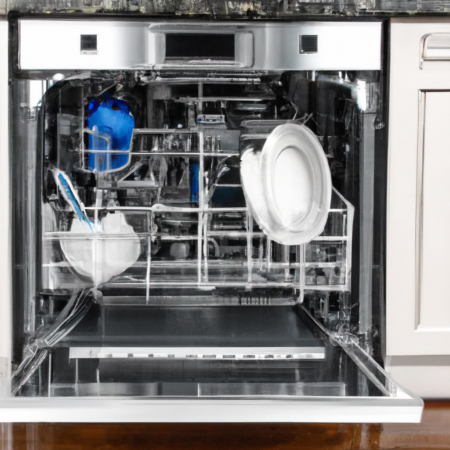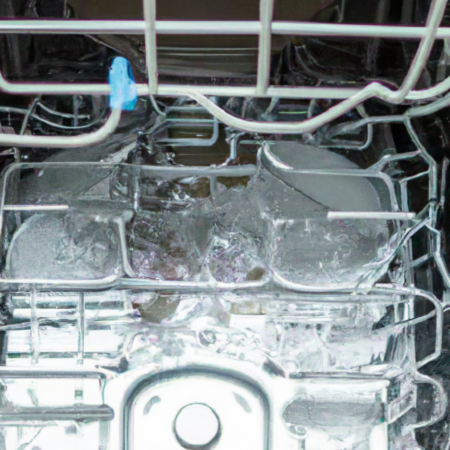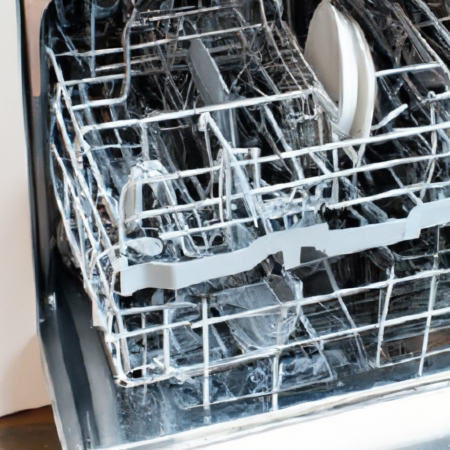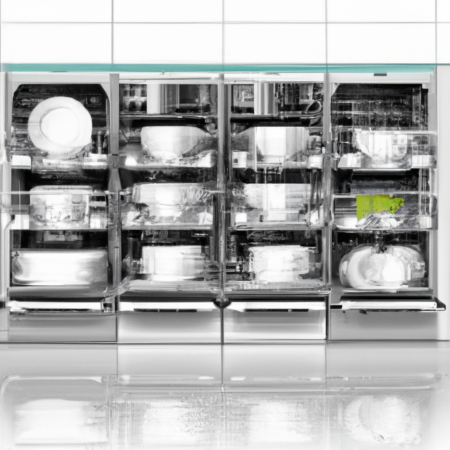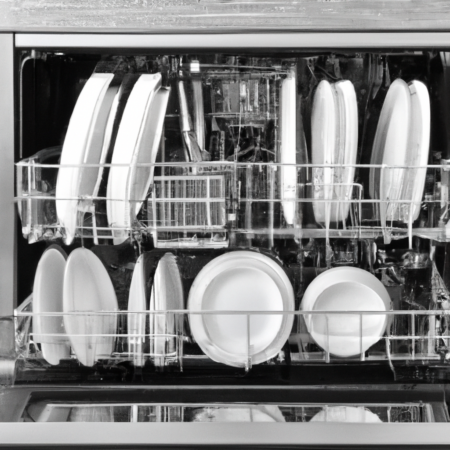With the novel coronavirus aka covid-19 taking over the world, sanitization and disinfection have become a part of our daily lives. We need to imply these practices in all chores we perform daily that can become a carrier of the virus. Along with other household items, sanitize, disinfect, and clean your dishwasher on a monthly basis to get rid of any potential microorganism, bacterial, fungal, or viral growth.
Keeping the dishwasher clean will not only prevent health hazards but, will also increase the performance and life span of your dishwasher. In this article, I will share tips and tricks on how to sanitize a dishwasher and reasons why it is important to do so, keep reading to find out.

3 Things to Do Every Time You Run the Dishwasher
The key to maintaining a dishwasher along with cleaning it regularly is to make sure you are using it correctly and are keeping up with the condition of all its important parts to make sure that they are performing well. Here are 3 things that you should always do while running a dishwasher:
Must Read: THE BEST DISHWASHER DETERGENTS IN 2022
Why Disinfect Dishwasher
The disinfecting of a dishwasher is just another safety protocol against the covid-19 virus, it is not necessary for a dishwasher to carry the novel coronavirus but dishes usually have fingerprints of people using and eating from them. If your dishwasher doesn’t clean properly it will not remove stains, prints, and viruses from the dishes which can lead to the growth of viral, bacterial, and fungal growth.
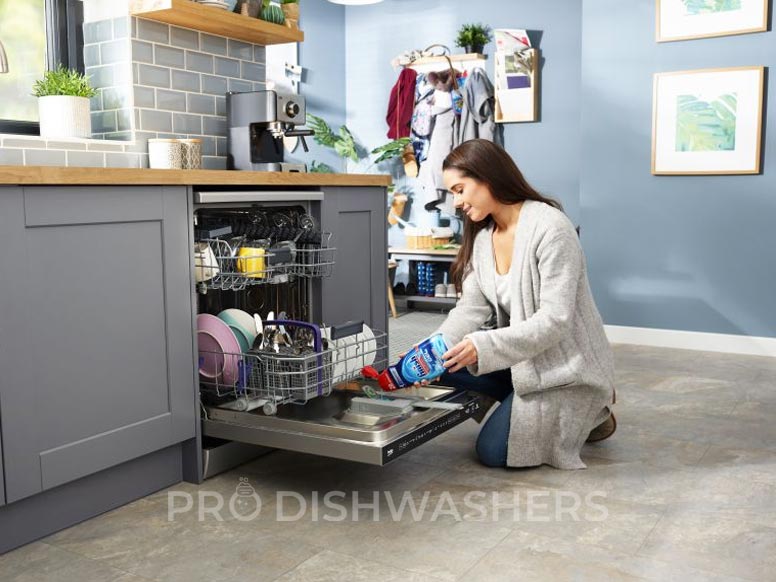
Except for that, disinfecting the dishwasher plays a vital role in increasing and improving the performance, quality of cleaning, and life of the dishwasher. Maintaining cleanliness will only help the dishwasher in working more efficiently. This is why you should disinfect and clean your dishwasher every two weeks or at least once a month.
7 Easy Tips to Disinfect Dishwasher
Below listed are a few easy tips to help you clean and disinfect your dishwasher at home:

1- Clean dishwasher filter
Dishwasher filters are normally self-cleaning but may get blocked while most modern dishwashers contain a manual filter that needs to be removed and cleaned manually. It’s crucial to maintain your filter clean and unclogged as it clears dishwater, preserves your dishwasher’s pump, and prevents food particles from clinging to your dishes. Read my detailed guide specifically about how to clean a dishwasher filter.
Run your filter under hot running water, then clean with dish soap to remove any remaining bits, mineral buildup, grimy buildup, soap scum, or particles. Avoid using any abrasive instruments like a scouring pad to scrape as they might harm your filter. Soak the dishwasher filter in hot water and reinstall them in the dishwasher after they have dried completely.
2- Clean dishwasher drain trap
To clean the dishwasher drain, baking soda may be used. It’s also more effective at cleaning stainless steel as it doesn’t corrode steel components. Combine baking soda and white vinegar in the drain trap of an empty dishwasher. Allow the baking soda to sit for a few minutes and run a hot water cycle with vinegar placed in a dishwasher-safe bowl on the top rack. Another way of cleaning the drain is to form balls using two cups of soda and hydrogen peroxide, as well as 3-5 drops of essential oil. Wait for them to harden. Then, with 2 cups of vinegar, place the soda bombs on the bottom rack. Use a hot water cycle in the dishwasher.
3- Sanitize dishwasher door
Fingerprints and other blemishes on the dishwasher door should be removed. If the outside is plastic, just wash it with hot soapy water and a clean towel. Glass cleaner, on the other hand, will successfully remove markings, filth, and stains if the dishwasher’s outside is constructed of stainless steel. You can also use baking soda, vinegar, and water mix to clean and disinfect the door. Pat the door with a damp cloth. Clean the rubber seal as well.
4- Run the garbage disposal
Due to constantly being used, garbage disposals develop foul, nasty odors over time due to stuck-on food bits and other residues. A simple combination of baking soda and vinegar may also be used to clean trash disposals. Half a cup of baking soda, followed by a cup of white vinegar or apple cider vinegar, should be poured down the disposal. Allow the mixture to boil and settle for five to ten minutes before turning on the disposal and running cold water through the unit to spread the mixture and flush it out.
5- Unclog dishwasher spray arms
To unclog dishwasher spray arms, they should be removed from the appliance. Clean up the holes in the arms using a piece of wire the same diameter as the holes, such as a coat hanger wire. Replace the arms in the dishwasher and rotate them to ensure that they turn freely. To dissolve mineral deposits, immerse them in warm water and vinegar and scrub with a toothbrush in severe situations.
6- Wash utensil holders and racks
To deep clean a dishwasher, remove all the racks and utensils holders of the dishwasher and wash them with a dishwasher cleaner using hot water. Use a soft toothbrush to scrub all the racks and holders. Once cleaned and dried, put them back inside the dishwasher.
7- Sanitize dishwasher interior
To sanitize the interior of your dishwasher, run a vinegar cycle at the hottest setting of your dishwasher. Sprinkle baking powder and vinegar inside the dishwasher and scrub it with a cloth lightly. Make a mixture of vinegar and water in a 1:3 ratio and place it in a dishwasher-safe bowl. Run a short cycle with hot water.
Why You Should Sanitize Your Dishwasher
If you don’t sanitize your dishwasher, you may experience the following problems:
- Dirty Dishes: If you don’t sanitize and disinfect your dishwasher, it will not clean the dishes
properly and your dishes will remain dirty even after a wash cycle. - Bacteria Buildup: Bacteria will buildup on your dishes and inside your dishwasher if you don’t
regularly clean and sanitize your dishwasher. - Bad Odor: You will notice a nasty odor coming out of your dishwasher once you open the door
of your appliance, this is another outcome of not sanitizing the dishwasher. - Stained Dishwasher Interior: When you don’t sanitize your dishwasher for a long time, you will
notice stains on the interior of it. - Mold Growth: If your dishwasher is not clean, mold will start growing in the dishwasher as it is
the perfect breeding ground for the growth and production of mold. If you’re already suffering from the mold production in your dishwasher then you can read this guide, where I’ve shared some amazing tips to get rid of mold growth in a dishwasher.
Conclusion
The dishwasher helps you clean your dirty dishes effortlessly and in return, you should keep your dishwasher clean and happy in order to expand its life. In times of covid-19, we have learned the importance of disinfection and cleanliness the hard way and to help the world defeat any such viruses, we should always keep our guard up and ensure cleanliness, especially in our kitchens.


